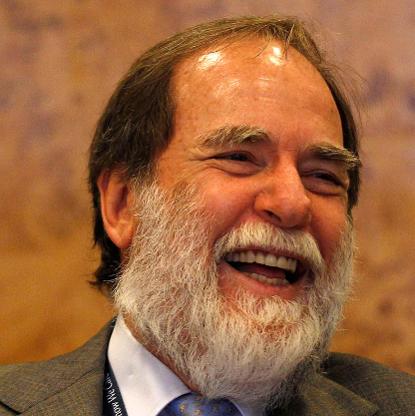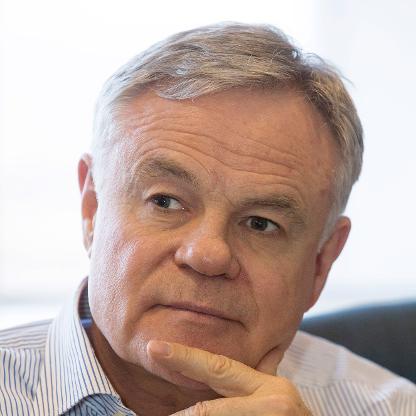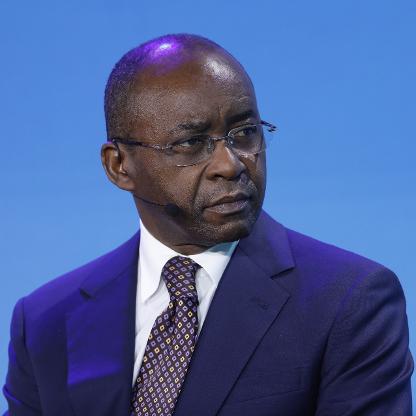One of the most anticipated lists in the world is the Forbes billionaire list that comes out every year in different
Being a billionaire is the world’s most envious status with only a select few being able to reach such heights. Every year, it brings with it various discussions, debates and new discoveries with names leaving and debuting on the list.
On January 9, 2019, Forbes released the 2019 list for the top billionaires in Africa. While a few spots were retained, the list shows a significant drop in figures with Aliko Dangote losing more than 2 billion dollars even though he retained the number 1 position. Nigerians dominate the list, which features only two women
From 1 to 19 as described and analysed by Forbes, below are the men and women dominating the African scene with loaded bank accounts

- Aliko Dangote – $10.3b Net worth
Aliko Dangote, Africa’s richest man, founded and chairs Dangote Cement, the continent’s largest cement producer. He owns nearly 88 per cent of publicly-traded Dangote Cement through a holding company. Dangote Cement produces 44 million metric tons annually and plans to increase its output by 33 per cent by 2020. Dangote also owns stakes in publicly-traded salt, sugar and flour manufacturing companies.

2. Mike Adenuga- $9.2 b net worth
Adenuga, Nigeria’s second richest man, built his fortune in telecom and oil production. His mobile phone network, Globacom, is the third largest operator in Nigeria, with 43 million subscribers. His oil exploration outfit, Conoil Producing, operates six oil blocks in the Niger Delta. Adenuga got an MBA at Pace University in New York, supporting himself as a student by working as a taxi driver. He made his first million at 26, selling lace and distributing soft drinks.

3. Nicky Oppenheimer & family- $7.3B net worth
Oppenheimer, the heir to his family’s fortune, sold his 40 per cent stake in South Africa’s diamond firm DeBeers to mining group Anglo American for $5.1 billion in cash in 2012. He was the third generation of his family to run

4. Nassef Sawiris- $6.3B net worth
Nassef Sawiris is a scion of Egypt’s wealthiest family. His brother Naguib is also a billionaire. Sawiris split Orascom Construction Industries into two entities in 2015: OCI and Orascom Construction

Johann Rupert & family
5. Johann Rupert & family -$5.3B net worth
Johann Rupert is chairman of Swiss luxury goods firm Compagnie Financiere Richemont, best known for the brands Cartier and Montblanc. It was formed in 1998 through a spinoff of assets owned by Rembrandt Group Limited (now Remgro Limited), which his father Anton formed in the 1940s. He owns a 7 per cent stake in diversified investment firm Remgro, which he chairs, as well as 25 per cent of Reinet, an investment holding co. based in Luxembourg. In recent years, Rupert has been a vocal opponent of plans to allow fracking in the Karoo, a region of South Africa where he owns

Issad Rebrab
6.
Issad Rebrab is the founder and CEO of Cevital, Algeria’s biggest privately-held company. Cevital owns one of the largest sugar refineries in the world, with the capacity to produce 2 million tons a year and a number of European companies, including French home appliances maker Groupe Brandt, an Italian steel mill and a German water purification company

Naguib Sawiris
7. Naguib Sawiris -$2.9B net worth
Just like his brother Nassef, Naguib Sawiris is a scion of Egypt’s wealthiest family. He built a fortune in telecom, selling Orascom Telecom in 2011 to Russian telecom firm VimpelCom (now Veon) in a multibillion-dollar transaction. Family holding La Mancha has stakes in Evolution Mining, Endeavour Mining and Golden Star, which operate gold mines in Africa and Australia.In 2017, he shifted ownership of La Mancha to his mother, Yousriya Loza-Sawiris, for estate planning purposes.

Koos Bekker
8. Koos Bekker- $2.3B net worth
Koos Bekker is revered for transforming South African newspaper publisher Naspers into an e-commerce investor & cable TV powerhouse. He led Naspers to invest in Chinese Internet and media firm Tencent in 200, by far the most profitable of the bets he made on companies elsewhere. Bekker, who retired as the CEO of Naspers in March 2014, returned as chairman in April 2015. During his tenure as CEO, which began in 1997, Bekker oversaw a rise in the market capitalization of Naspers from about $600 million to $45 billion. During that time, he drew no salary, bonus, or benefits and was compensated via stock option grants that vested over time.

8. Isabel dos Santos- $2.3B net worth
Isabel dos Santos is the oldest daughter of Angola’s longtime former president, Jose Eduardo dos Santos, who stepped down in 2017. Her father made her head of Sonangol, Angola’s state oil firm, in June 2016, a role she had to give up in 2017 after Angola’s new president removed her. Forbes research found that while president, Isabel’s father transferred to her stakes in several Angolan companies, including banks and a telecom firm. She owns shares of Portuguese companies, including telecom and cable TV firm Nos SGPS. A spokesperson for Isabel told Forbes that she “is an independent businesswoman and a private investor representing solely her own interests.”

8
Mohamed Mansour oversees family conglomerate Mansour Group, which was founded by his father Loutfy (D.1976) in 1952 and has 60,000 employees. Mansour established General Motors dealerships in Egypt in 1975, later becoming one of GM’s biggest distributors worldwide. Mansour Group also has exclusive distribution rights for Caterpillar equipment in Egypt and seven other African countries. He served as Egypt’s Minister of Transportation from 2006 to 2009 under the Hosni Mubarak regime. His brothers Yasseen and Youssef, who share ownership in the family group, are also billionaires; his son Loutfy heads private equity arm Man Capital.

Strive Masiyiwa
8. Strive Masiyiwa- $2.3B net worth
Strive Masiyiwa overcame protracted government opposition to launch mobile phone network Econet Wireless Zimbabwe in his country of birth in 1998. He owns just over 50 per cent of the publicly-traded telecom, which is one part of his larger Econet Group

8. Patrice Motsepe- $2.3B net worth
Patrice Motsepe, the founder and chairman of African Rainbow Minerals, became a billionaire in 2008 – the first black African on the Forbes list. In 2016, he launched a new private equity firm, African Rainbow Capital, focused on investing in Africa. Motsepe also has a stake in Sanlam, a listed financial services firm, and is the president and owner of the Mamelodi Sundowns Football Club. He became the first black partner at law firm Bowman Gilfillan in Johannesburg and then started a contracting business doing mine scut work. In 1994, he bought low-producing gold mine shafts and later turned them profitable.

13
Aziz Akhannouch is the majority owner of Akwa Group, a multibillion-dollar conglomerate founded by his father and a partner, Ahmed Wakrim, in 1932. It has interests in petroleum, gas and chemicals through publicly-traded Afriquia Gaz and Maghreb Oxygene. Akhannouch is Morocco’s Minister of Agriculture and Fisheries and the president of a royalist political party

14.Mohammed Dewji $1.9B net worth
Mohammed Dewji is the CEO of METL, a Tanzanian conglomerate founded by his father in the 1970s. METL is active in textile manufacturing, flour milling, beverages and edible oils in eastern, southern and central Africa. It operates in at least six African countries and has ambitions to expand to several more. Dewji, Tanzania’s only billionaire, signed the Giving Pledge in 2016, promising to donate at least half his fortune to philanthropic causes.

15
Othman Benjelloun is CEO of BMCE Bank of Africa, which has a presence in more than 20 African countries. His father was a shareholder in RMA Watanya, a Moroccan insurance company, which Benjelloun built into a leading insurer. Through his holding company FinanceCom, he has a stake in the Moroccan arm of French telecom firm Orange. Benjelloun inaugurated a $500 million plan to build the 55-story Mohammed VI Tower in Rabat. It will be one of the tallest buildings in Africa. FinanceCom is part of a project to develop a multibillion-dollar tech city in Tangiers that is expected to host 200 Chinese companies.

Abdulsamad Rabiu
16. Abdulsamad Rabiu- $1.6B net worth
Abdulsamad Rabiu is the founder of BUA Group, a Nigerian conglomerate active in cement production, sugar refining and real estate. In December 2018, Rabiu merged his privately-owned Kalambaina Cement company with listed firm Cement Co. of Northern Nigeria, which he controlled. His BUA Group also owns Obu Cement, which expanded its production with a new line in 2018. Rabiu, the son of a businessman, inherited land from his father and set up his own business in 1988 importing iron, steel and chemicals.

Yasseen Mansour
17. Yasseen Mansour -$1.5B net worth
Yasseen Mansour is a shareholder in family-owned conglomerate Mansour Group, which was founded by his father Loutfy (d.1976) in 1952. Mansour Group is the exclusive distributor of GM vehicles and Caterpillar equipment in Egypt and several other countries. His brothers Mohamed and Youssef are also billionaires and part owners of Mansour Group. He’s chairman of Palm Hills Developments, one of Egypt’s biggest real estate developers.

Youssef Mansour
18. Youssef Mansour – $1.2B net worth
Youssef Mansour is chairman of family-owned conglomerate Mansour Group, which was founded by his father Loutfy (d.1976) in 1952

19. Folorunsho Alakija -$1.1B net worth
FolorunshoAlakija is vice chair of Famfa Oil, a Nigerian oil exploration company with a stake in Agbami Oilfield, a prolific offshore asset. Famfa Oil’s partners include Chevron and Petrobras. Alakija’s first company was a fashion label whose customers included the wife of former Nigerian president Ibrahim Babangida. The Nigerian government awarded Alakija’s company an oil prospecting license in 1993, which was later converted to an oil mining lease. The Agbami field has been operating since 2008; Famfa Oil says it will likely operate through 2024.

Michiel Le Roux
19. Michiel Le Roux – $1.1B net worth
South Africa’s Michiel Le Roux founded Capitec Bank in 2001 and owns about an 11 per cent stake. The bank, which trades on the Johannesburg Stock Exchange, targets South Africa’s emerging middle class. He served as chairman of the board of Capitec from 2007 to 2016 and has continued on as a board member. Le Roux previously ran Boland Bank, a small regional bank in Cape Town’s hinterland.










